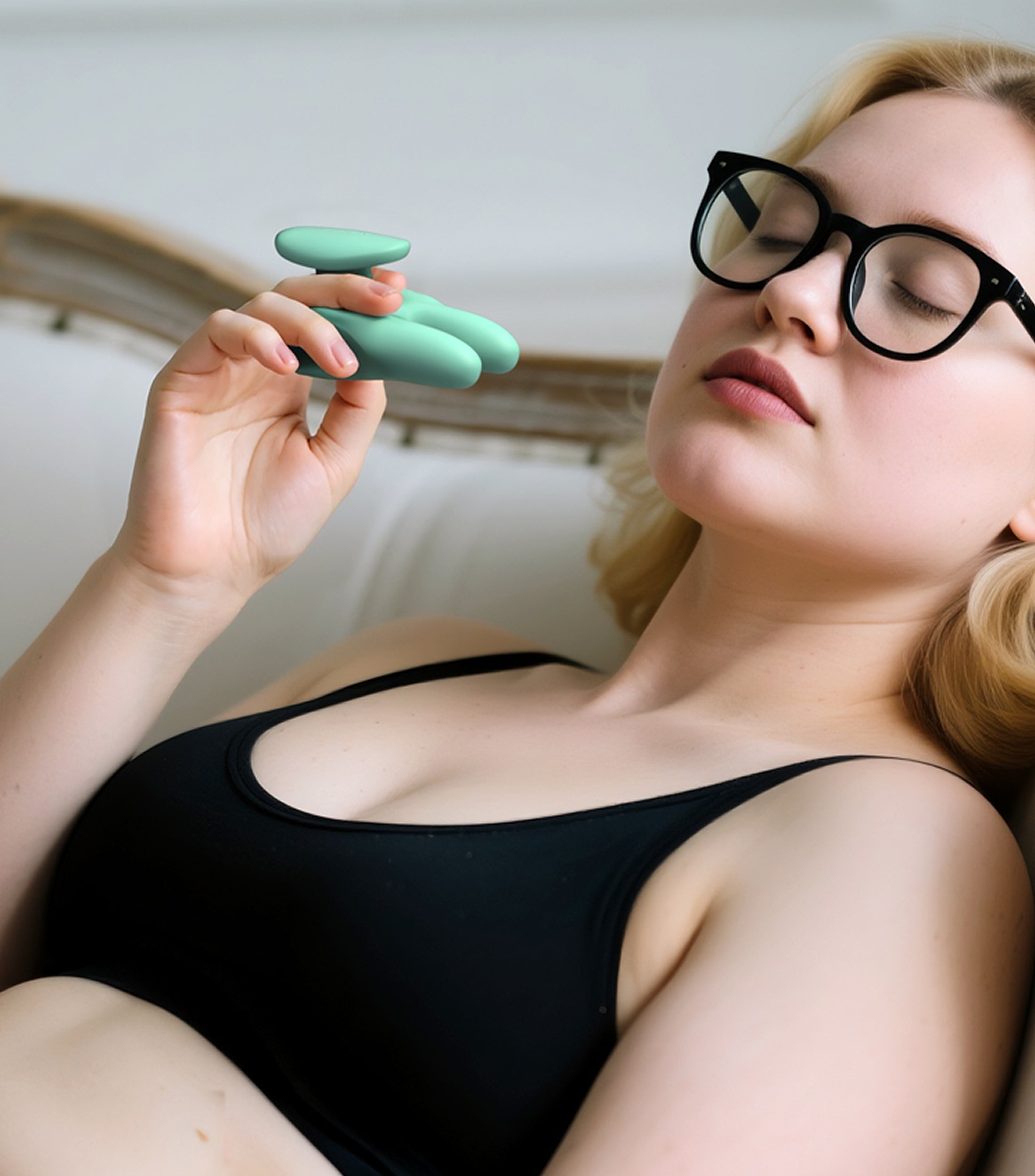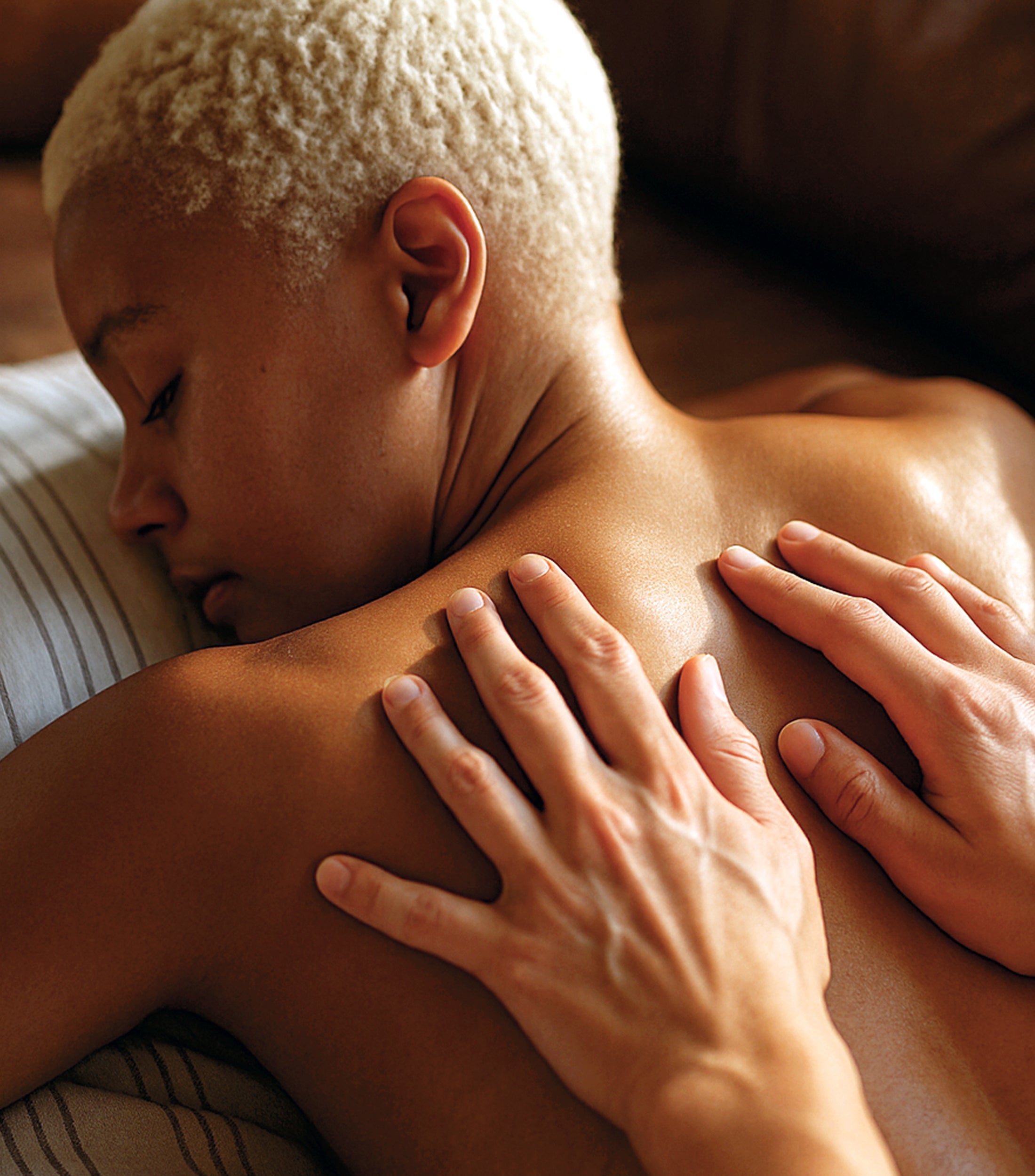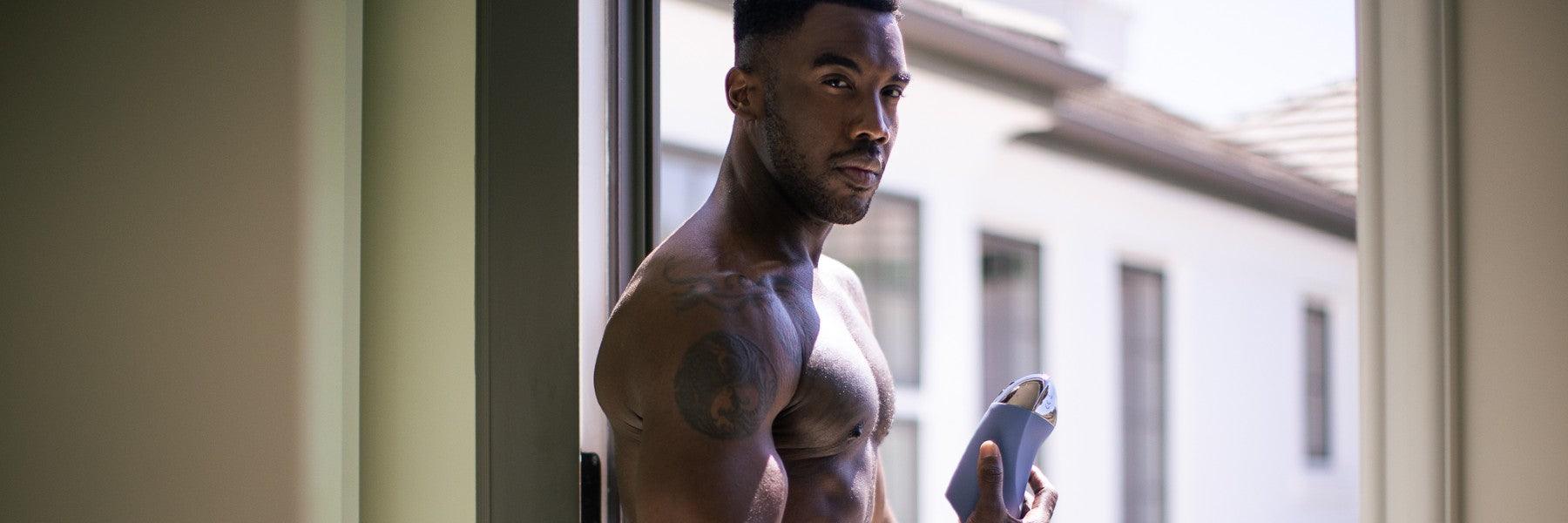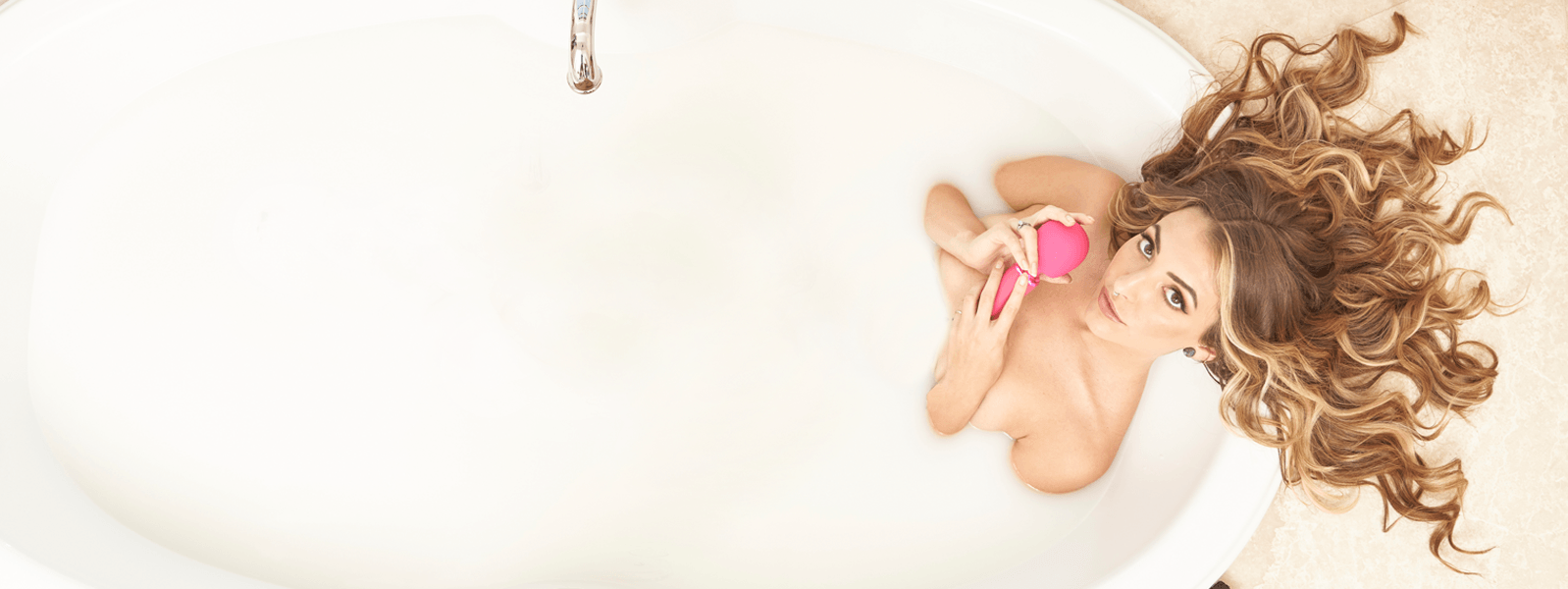What Causes Morning Wood?
Can Anyone With a Penis Get Morning Wood?
How Often Can, Individuals With a Penis Get Morning Wood?
Does Sleep Play a Role in Getting an Erection While Asleep?
If You Stop Getting Morning Wood: Cause for Concern?
When Is It Time to See a Doctor?
Morning wood, erections, or boners.
Whatever phrase you've heard for waking up in the morning with an erection, this is a pretty standard experience for men — or anybody with a penis.
You've probably heard jokes about morning wood on TV or in movies. But what exactly is it?
Morning wood is the boner you roll out of bed with. Waking up with an erection is perfectly normal for people of all ages. Believe it or not, it's one of the most apparent signs of a healthy penis.
Since middle school, most males have been getting morning erections, so you might not even think to question why it happens. However, morning wood is closely linked to your body's natural functions, including aging, testosterone production, and sleep cycles.
To better understand your morning wood, you'll need to understand the human body better. Let's explore why morning wood happens, what it means to have it (or not have it), and what it might be telling you about your health.
Read: On Erectile Dysfunction: How Can Sex Toys Improve Your Sex Life?
What Is Morning Wood?

Simply put, morning wood occurs when you wake up in the morning with an erect penis. Known in the medical world as nocturnal penile tumescence (NPT), it's a perfectly regular and common occurrence for many boys and men. People of all ages can experience NPT, although it's more common in younger men.
Not only is morning wood a regular occurrence, but your body may actually be hardwired for them. On average, most men get three to five erections every night while they sleep.
In fact, waking up with that familiar morning stiffness can greatly indicate health. It means that the circulation and nervous system are healthy and functioning the way they should.
What Causes Morning Wood?
Even if you're used to it by now, you might be wondering: Why does morning wood happen? While it's completely natural, it's still a complex process with several factors.
Sexual Arousal?
Unlike other types of erections, morning wood isn't necessarily sexual. Arousal during sleep — like a wet dream — can occur, but it's not the driving cause of morning wood.
Studies suggest that the erection itself may be different from those caused by arousal. One study found that some men experienced pain when they had morning wood but not a typical erection.

As opposed to a sexual response, morning wood is a normal function of the male reproductive system, influenced by sleep cycles, hormones, and a healthy blood flow throughout the body.
The word "morning wood" is a bit of a misnomer. Penises often become erect and then flaccid several times throughout the night. You're just more likely to notice it right when you wake up.
Sleep Cycles
Erections at night tend to occur in the most critical part of sleep: REM sleep, or rapid eye movement sleep. REM sleep occurs a few times throughout the night. However, you're likely to wake up after the end of a cycle, which is why you might notice an erection in the morning.
Levels of your body's hormones, mainly testosterone, are also the highest in the morning, right after you wake up from REM sleep. This increase in testosterone can trigger an erection, even without stimulation.
As people get older, levels of testosterone decline naturally. This is why around the ages of 40 and 50, nighttime erections, including morning wood, might decrease as well.
Have a Better Sex Every Day!
Improve prostate health by balancing testosterone levels, stimulating blood flow, and heightening arousal with Good in Bed Men's Blend. Focus on your vaginal health to increase natural lubrication with Good in Bed Women's Blend, a natural, vegan supplement.
Brain Relaxation
When you're awake, the brain actively works to suppress erections, releasing certain hormones to stop you from popping a boner at the wrong time. However, when you're asleep, your body doesn't release as many of those hormones. Once your brain relaxes, the process might happen more naturally — without you even realizing it.
Can Anyone With a Penis Get Morning Wood?

Some people might see penises and manhood as inseparable. But let's face it — the world is changing, along with our notions of sex and gender. Some women or non-binary people have penises too.
Most penis-related advice out there is for men, but other people might face different kinds of penile challenges. There's no hard and fast rule when it comes to morning wood for people with penises. Depending on the person, their hormone levels, and the kind of hormone treatment they may or may not be taking, the penis will react differently.
Many transgender women taking estrogen have reported that their spontaneous erections — both daytime and nighttime — have gone down significantly. Some still report some erections, while others say it doesn't happen at all.
One study found that reduced testosterone levels due to hormone replacement therapy (HRT) in trans women did not correlate with sexual function. However, when the study examined the impact of testosterone levels on morning wood, they found it significantly correlated. This means that as testosterone levels go down, it's not likely to affect sexual function or erectile response to sexual arousal. Morning wood, on the other hand, is expected to decrease.
How Often Can (and Should) Individuals With a Penis Get Morning Wood?
People of all ages can experience morning wood. Younger adults have higher testosterone levels, and therefore, more nighttime erections. Young adults might even have morning wood every morning and several times throughout the night.
Morning wood typically occurs regularly from young adulthood to the late 30s. However, as a person approaches their 40s and 50s, they might experience a gradual decline in morning wood. This isn't necessarily a cause for concern. Testosterone levels will naturally decline over the years, reducing the frequency of morning erections.
Does Sleep Play a Role in Getting an Erection While Asleep?
Given the link between sleep cycles and morning wood, you might be wondering how the amount of sleep might play into this. Research suggests that the quality of your sleep can affect how frequently timber morning occurs.
One study found that older men who got less sleep at night had lower testosterone levels in the morning, resulting in fewer episodes of morning wood. While future studies are needed to explore this link, it's clear that sleep can play an essential role in overall health, including hormones and morning wood.
If You Stop Getting Morning Wood: Cause for Concern?

While it might be a bit frustrating at times, having an erect penis is an excellent sign for your body when you wake up. The presence of morning wood means that you have healthy blood flow and that you're capable of getting and maintaining an erection while awake. Many studies use morning wood as an indicator of hormonal or sexual health.
A gradual decline in morning wood is average, especially as you age. However, a sudden stop in episodes of morning wood could be a sign of an underlying condition. If you suddenly stop experiencing morning wood, this might be a sign of erectile dysfunction (ED). It could also be a sign of a hormonal imbalance.
Boost Your Libido
Improve prostate health by balancing testosterone levels, stimulating blood flow, and heightening arousal with Good in Bed Men's Blend, a natural, vegan supplement.
When Is It Time to See a Doctor?
Morning wood is entirely healthy for people of all ages. However, if you stop having morning wood for any reason, it might be time to see a doctor. This sudden drop in frequency could be a sign of an underlying condition like ED, hormonal imbalance, or problems with sleep.
Painful morning erections or erections that last more than an hour after you wake up might also be a sign of another medical issue.
The frequency of morning wood is different from person to person. Some people might experience it every day, while others have it a few times a week or less. If you're concerned about frequency or overall sexual health, speak with your doctor about your morning wood.
Read: How Can Sex Toys Improve Your Sex Life?
The Bottom Line
In all likelihood, your morning wood is just a regular part of your life — just as natural as eating, sleeping, and breathing. While it can be awkward at times, morning wood is a sign that your body is doing what it should, especially in your 20s and 30s.
As you grow, your frequency of morning wood may decline. No matter your experiences, be sure to pay attention to how often you get morning wood and talk to your doctor if you have any concerns.
References:
Advantages and limitations of sleep-related erection and rigidity monitoring: a review. (June 2018). International Journal of Impotence Research.
5 Penis Facts. (April 2021). NHS.
Sleep-Related Painful Erections—A Case Series of 24 Patients Regarding Diagnostics and Treatment Options. (October 2017). The Journal of Sexual Medicine.
Sleep-related erections: neural mechanisms and clinical significance. (March 2004). Current Neurology and Neuroscience Reports.
Checking Testosterone Levels: Why the Time of Day Matters. (November 2013). Daily Health Wire.
10 Rules for Managing Your Penis When You’re Trans*. (August 2013). Thought Catalog.
The effects of androgen depletion on human erectile function: a prospective study in male-to-female transsexuals. (December 2004). International Journal of Impotence Research.
Sleep Quantity Affects Morning Testosterone Levels In Older Men. (April 2007). American Academy of Sleep Medicine.
Does No Morning Erection Mean Erectile Dysfunction?. (January 2020). Verywell Health.
What your morning wood says about your health. (May 2021). Mic.
 Vibrators
Vibrators Toys for Women
Toys for Women Toys for Men
Toys for Men Couples & Partners
Couples & Partners



Share
Getting Vocal — Why Do People Make Noises When They Have Sex?
Feeling It All Over - What Is Sexual Arousal?